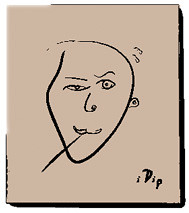Ah, those French. How silly can they be? The European Union wants to consolidate its integration and France, trying to protect its own 35-hour workweek and other welfare benefits, rejects the E.U. constitution. What a bunch of antiglobalist Gaullist Luddites! Yo, Jacques, what world do you think you're livin' in, pal? Get with the program! It's called Anglo-American capitalism, mon ami.
Lordy, it is fun poking fun at France. But wait ...wait ... what is that noise I hear coming from the U.S. Congress? Is that ... is that members of the U.S. Congress - many of them Democrats - threatening to reject Cafta, the Central American Free Trade Agreement? Is that members of the U.S. Congress afraid to endorse a free-trade agreement, signed over a year ago, with El Salvador, Costa Rica, Guatemala, Honduras, Nicaragua and the Dominican Republic? Mon Dieu! I am afraid it is. And for many of the same reasons France has resisted more integration: a protectionist fear of competition in a world without walls.
Yes, we are all Frenchmen now.
Well, not quite. But that is where we are heading in the U.S. if we let the combination of the sugar lobby, which wants to block more imports from Central America; the A.F.L.-C.I.O., which doesn't like any free trade agreements; and Democrats who just want to defeat Cafta so they can make President Bush a lame duck have their way and block Cafta ratification. I understand Democrats want to stick it to Mr. Bush, but could they please defeat him on a policy he is wrong about (there are plenty) and not on expanding free trade in this hemisphere, which he is right about.
The French economic instinct is not one we want to start emulating now, just as the global playing field is being flattened, bringing in more competitors from Poland to China to India. This is a time to play to our strengths of openness, flexibility and willingness to embrace creative destruction, and lead on free trade.
The McKinsey Global Institute just published a study of how both Germany and France have suffered, compared with the U.S., by trying to put up walls against outsourcing and offshoring. It noted: "A new competitive dynamic is emerging: early movers in offshoring improve their cost position and boost their market share, creating new jobs in the process. Companies who resist the trend will see increasingly unfavorable cost positions that erode market share and eventually end in job destruction. This is why adopting protectionist policies to stop companies from offshoring would be a mistake. Offshoring is a powerful way for companies to reduce their costs and improve the quality and kinds of products they offer consumers, allowing them to invest in the next generation of technology and create the jobs of tomorrow."
Cafta is critical for enabling U.S. and Central American textile firms to compete with China. U.S. firms specialize in the more sophisticated work of making dyes, designing patterns and manufacturing specialized yarns, threads and fabrics, and the Cafta countries specialize in the labor-intensive sewing. Because the Cafta countries are right next door, U.S. retailers can respond quickly to changes in the marketplace, which far-off Chinese factories cannot do as easily. That's also why, explains Deputy Secretary of State Robert Zoellick, that a shirt that says "Made in Honduras" might contain 60 percent U.S. content, while a similar shirt that says "Made in China" most likely would have none.
Finally, there is geopolitics. In the 1980's, we were worried Central America was going to go communist. Now we are worried it is going to go capitalist? We spent billions fighting communism there. Now we have a chance to help consolidate these fragile democracies by locking in a trading relationship with the U.S. that is critical for their development. Shame on us if we balk.
But President Bush needs to spend some political capital and sell this deal in these terms. "The administration has to get out and connect the dots for people," said Richard Haass, president of the Council on Foreign Relations and author of a thoughtful new book on foreign policy, "The Opportunity: America's Moment to Alter History's Course." "Otherwise the vocal minority will trump the interests of the majority. We should not assume that this backlash [against free trade] that is going around is just a French malaise or Dutch elm disease. It could happen here." But if we think we can indulge protectionism and not worry about the geopolitical spillovers in our own backyard, that is a real illusion. "The world is not Las Vegas," added Mr. Haass. "What happens there will not stay there."

No comments:
Post a Comment